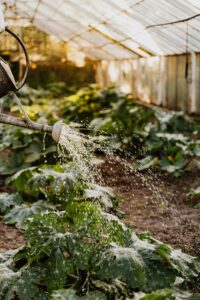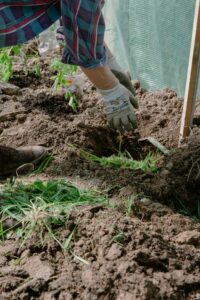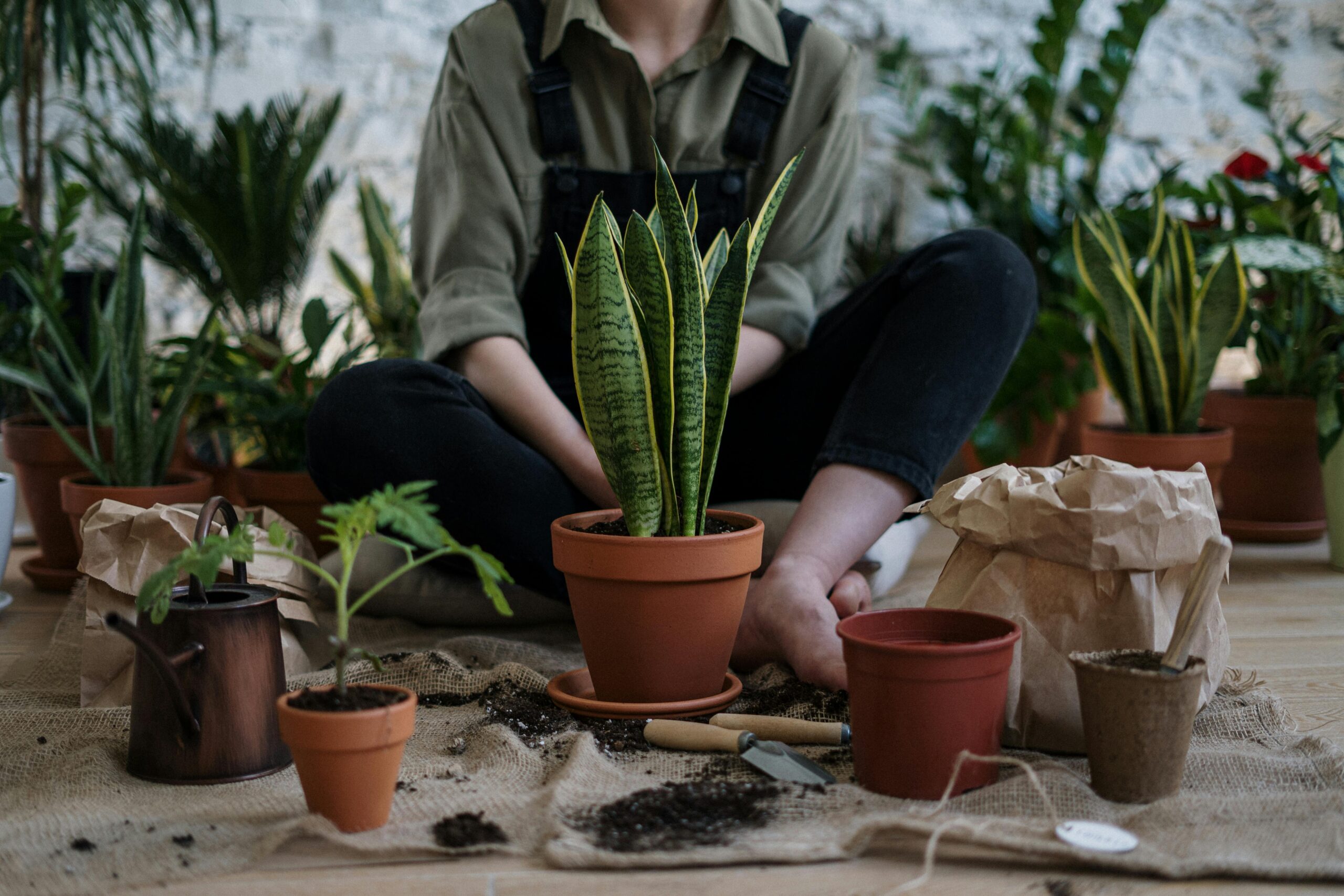Did you know that gardening can do wonders not just for your mental and physical health, but also for the environment? From reducing carbon emissions to promoting biodiversity, the environmental benefits of gardening are truly remarkable. By creating green spaces in your backyard or even on your balcony, you can play a significant role in mitigating climate change, conserving water, and providing habitats for various species. So, whether you’re a seasoned gardener or just starting out, get ready to discover how your love for plants can make a positive impact on the world around you.
Reducing Carbon Footprint
Gardening is not only a rewarding hobby but also a powerful way to reduce your carbon footprint. By growing your own plants and vegetables, you can contribute to lowering carbon dioxide levels in the atmosphere. Plants absorb carbon dioxide during photosynthesis, helping to offset the emissions produced by human activities. So, by nurturing a garden, you are actively participating in the fight against climate change.
Not only does gardening help reduce carbon dioxide levels, but it also plays a crucial role in absorbing pollutants from the air. Plants act as natural filters, trapping harmful particles and improving air quality. By creating a garden filled with diverse vegetation, you can help purify the air in your surroundings. So, grab your gardening tools and get ready to breathe in the fresh air that your garden will provide.
In addition to cleaning the air, gardening is also instrumental in preserving soil health. Through proper planting techniques and organic practices, you can enhance soil fertility and structure. Healthy soil is essential for plant growth and can store carbon, preventing it from being released into the atmosphere. By taking care of your garden’s soil, you are contributing to the overall health and sustainability of our planet.
Conserving Water
Water scarcity is a pressing global issue, and gardening can play a significant role in addressing this challenge. One way gardening helps conserve water is by reducing water runoff. When you have a well-maintained garden, excess water is absorbed by the soil rather than being wasted through runoff. This not only saves water but also helps prevent soil erosion, which can have devastating effects on ecosystems.
Gardening can also increase water filtration by creating a natural filtration system. When rainwater passes through the soil in your garden, it gets purified, removing contaminants and replenishing groundwater reserves. This natural process helps ensure cleaner water sources for both humans and wildlife.
Furthermore, by adopting water-efficient gardening practices such as mulching and drip irrigation, you can minimize water waste and optimize the water usage in your garden. Implementing these methods will not only help conserve water but also save you money on your water bills in the long run.

Improving Air Quality
One of the most significant benefits of gardening is its positive impact on air quality. As plants undergo photosynthesis, they release oxygen into the atmosphere, increasing oxygen levels. The more plants you have in your garden, the more oxygen they produce, creating a healthier environment for you and your community.
Besides increasing oxygen levels, plants also act as natural air purifiers by filtering pollutants. They absorb harmful gases and particulate matter, trapping them in their leaves and roots. By gardening, you can contribute to reducing the concentration of air pollutants, creating cleaner and fresher air in your vicinity.
Moreover, gardening can effectively decrease airborne allergens, such as pollen. By cultivating a variety of plant species, you can help reduce allergy symptoms, making the air more enjoyable for everyone, especially those who suffer from allergies.
Promoting Biodiversity
Creating a garden provides an opportunity to promote biodiversity and support wildlife. By planting a diverse range of native plants, you can create a habitat for various animal species, attracting beneficial insects, birds, and butterflies. These creatures play a crucial role in pollination, helping to fertilize plants and ensure their reproduction.
Nurturing native plant species is particularly important as they have evolved to thrive in a specific region, providing food and shelter for local wildlife. By incorporating these plants into your garden, you are contributing to the preservation of biodiversity and supporting the natural ecosystems in your area.
In addition, the presence of wildlife in your garden can be incredibly rewarding. Watching birds feed on nectar, observing bees pollinate flowers, and listening to the soothing melodies of nature can bring you closer to the wonders of the natural world.

Enhancing Soil Quality
Gardening is a powerful way to enhance soil quality and promote healthy plant growth. When you engage in gardening practices such as adding compost and organic matter, you boost the levels of nutrients in the soil. This ensures that your plants have the necessary resources to thrive and produce abundant yields.
Moreover, increasing organic matter in the soil helps improve its structure. Healthy soil with improved structure allows better water retention and drainage, reducing the risk of waterlogging or drying out. By paying attention to soil health, you are creating a fertile foundation for your garden and supporting the overall health of the environment.
Reducing Food Waste
An often-overlooked benefit of gardening is its role in reducing food waste. By growing your own produce, you can have a direct impact on the amount of food that goes uneaten and ends up in landfills. When you cultivate your fruits and vegetables, you have more control over their harvest, ensuring that you only pick what you need.
Furthermore, gardening promotes homegrown produce, which is usually fresher and more flavorful than store-bought equivalents. By enjoying the fruits of your labor, you can minimize the demand for packaged and processed foods, leading to a decrease in packaging waste and energy consumption associated with food transportation.
Composting is another important aspect of gardening that helps reduce food waste. Instead of throwing away food scraps, you can compost them and turn them into nutrient-rich soil amendments. This not only reduces the amount of waste in landfills but also provides valuable organic matter to nourish your garden.

Creating Green Spaces
Gardening is not limited to traditional plots of land; it can also involve creating green spaces in urban areas. By adding plants and flowers to your balcony or rooftop, you can improve the aesthetics of your surroundings and create a mini oasis amidst the concrete jungle.
These green spaces have a positive impact on mental well-being, providing a sense of tranquility and connection with nature. Spending time in a garden or even just looking at greenery has been shown to reduce stress and improve overall mental health.
Additionally, green spaces contribute to reducing the heat island effect commonly experienced in urban areas. Buildings and concrete absorb heat and radiate it back, leading to higher temperatures. By incorporating vegetation, you can provide shade, cool the environment, and mitigate the heat island effect.
Preserving Water Resources
Gardening practices can have significant implications for water resources. By decreasing the demand for irrigated landscapes and opting for water-efficient gardening methods, you can help conserve water. This, in turn, reduces the strain on water sources and ensures their sustainability for future generations.
Furthermore, gardening can mitigate water pollution. When you adopt organic practices, you minimize the use of harmful pesticides and fertilizers that can contaminate nearby water bodies. By being mindful of the products you use in your garden, you contribute to the protection of aquatic ecosystems.
Creating gardens that incorporate native plant species is particularly beneficial for water resources. Native plants are well-adapted to the local climate and require less water, reducing the need for excessive irrigation. Through thoughtful garden design and plant selection, you can be a steward of water resources and champion sustainable gardening practices.
Mitigating Climate Change
Gardening can be an effective means of mitigating climate change, particularly in urban areas. By planting trees and creating green spaces, you can alleviate the urban heat island effect. Trees provide shade, cool the air through evaporation, and reduce the need for excessive air conditioning, thus lowering energy consumption.
Furthermore, gardening enables you to contribute to energy conservation. When you grow your fruits and vegetables, you reduce the need for food transportation, which consumes energy and releases greenhouse gases. By embracing locally grown produce, you can make a tangible difference in reducing carbon emissions associated with long-distance travel.
By engaging in gardening practices, you become less reliant on fossil fuels. Instead of buying produce shipped from far away, you can rely on your own sustainable garden for a significant portion of your food needs. This self-sufficiency reduces your carbon footprint and encourages a more sustainable lifestyle.
Educating and Engaging
Gardening is not just a solitary activity; it can bring communities together and foster environmental responsibility. By actively participating in gardening initiatives and sharing your knowledge with others, you can teach sustainable practices and inspire others to care for the environment.
Gardening provides an opportunity to educate children about the importance of nature and the impact of human actions. Involving them in gardening tasks, such as planting seeds or harvesting vegetables, fosters a sense of responsibility and connection to the natural world.
Furthermore, community gardens and horticultural programs offer spaces for individuals to come together, share resources, and build connections. By joining these initiatives, you can engage with like-minded individuals, contribute to a greener community, and make a positive impact on the environment.
In conclusion, gardening offers a multitude of environmental benefits. From reducing carbon footprints and conserving water resources to improving air quality and promoting biodiversity, every action you take in your garden can make a difference. By embracing the power of gardening, you can create a greener, healthier, and more sustainable future for yourself and generations to come.


